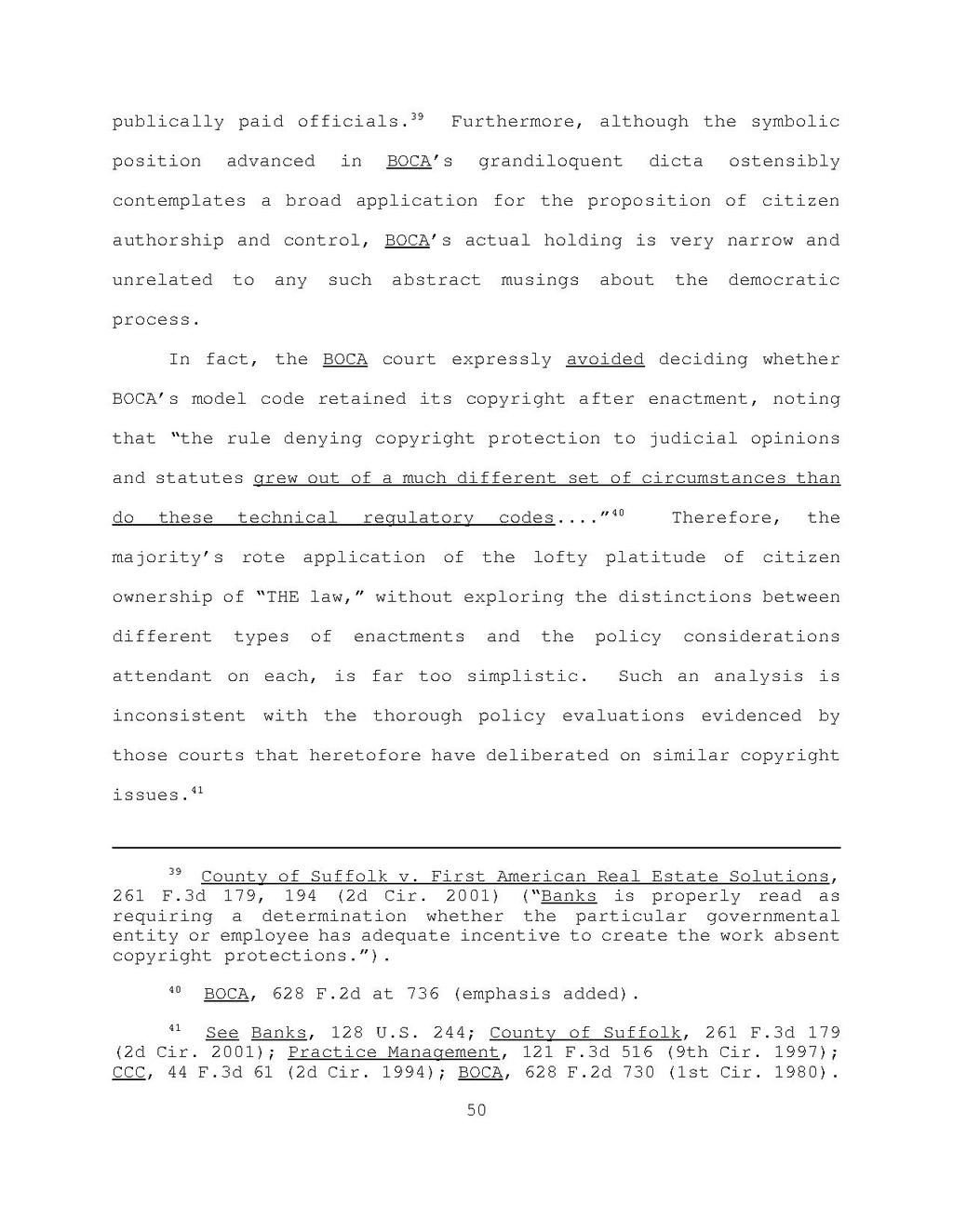publically paid officials.[1]Furthermore, although the symbolic position advanced in BOCA 's grandiloquent dicta ostensibly contemplates a broad application for the proposition of citizen authorship and control, BOCA 's actual holding is very narrow and unrelated process.
In fact, the BOCA court expressly avoided deciding whether BOCA's model code retained its copyright after enactment, noting that "the rule denying copyright protection to judicial opinions and statutes grew out of a much different set of circumstances than do these technical regulatory codes...."[2] Therefore, the to any such abstract musings about the democratic majority's rote application of the lofty platitude of citizen ownership of "THE law," without exploring the distinctions between different types of enactments and the policy considerations attendant on each, is far too simplistic. Such an analysis is inconsistent with the thorough policy evaluations evidenced by those courts that heretofore have deliberated on similar copyright issues.[3]
- ↑ County of Suffolk v. First American Real Estate Solutions, 261 F.3d 179, 194 (2d Cir. 2001) ("Banks is properly read as requiring a determination whether the particular governmental entity or employee has adequate incentive to create the work absent copyright protections.").
- ↑ BOCA, 628 F.2d at 736 (emphasis added).
- ↑ See Banks, 128 U.S. 244; County of Suffolk, 261 F.3d 179 (2d Cir. 2001); Practice Management, 121 F.3d 516 (9th Cir. 1997); CCC, 44 F.3d 61 (2d Cir. 1994); BOCA, 628 F.2d 730 (1st Cir. 1980).
50
